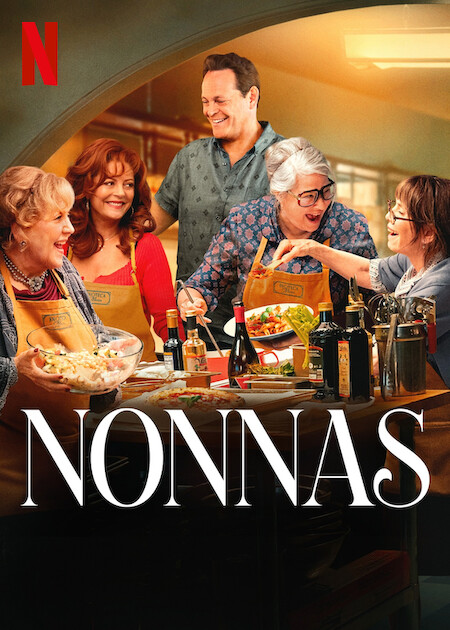I’m about as “down home” as any professing Italian American. I was born in Brooklyn and the first in the family to go to college. My Mezzogiorno pedigree is mutt-worthy. But for the life of me I’m still stumped by the low-class mentality that still pervades our community.
It’s the way so many Italian Americans identify their heritage solely with food and gritty stereotypes. Perhaps it’s the reason so many of our community ran to the nearest exits over the generations. In 1995, my colleague Bob Masullo did a penetrating review of the book Crossing Ocean Parkway by Marianna (De Marco) Torgovnick. The author explained why her stifling Italian neighborhood led her to marry into the Jewish side of that Brooklyn boulevard. (You can read the review in The Italic Way issue XXIV in our Research Library at www.italic.org.)

Masullo asserted that De Marco was not fully grounded in her heritage, like the majority of Italian Americans. To paraphrase Masullo, revering your immigrant culture and a having a passion for Italian cuisine are not enough to make you an informed Italian American. Yet today we are witnessing a new generation of half-baked Italian American influencers with the same limited perspective. They want to celebrate heritage not study it.
A new Netflix movie titled Nonnas is garnering praise from many as an homage to family cooking skills. It is based on a true story of a middle-aged Italian American man who opens a restaurant on Staten Island, NY, staffing the kitchen with Italian grandmothers instead of professional chefs. It’s a so-so movie that uses the term ‘Sunday Gravy’ as the restaurant owner’s name for that meat-ladened tomato sauce we all enjoyed growing up. Many of us still enjoy that Sunday ritual, if not the misnomer “gravy.”
My family calls it sauce, and we eat it with macaroni not pasta—family vocabulary varies. But this isn’t about sauce vs. gravy. It’s about our cuisine defining our existence. I once cringed when I heard a food commercial that featured an Italian American housewife saying, “We’re Italian, we live to eat.” It seems that no other ethnic group enjoys food to the degree we do. Dare I say it, in that regard we are not far removed from the Black community where bacon and fried chicken appear to be their raison d’etre. Still, they manage to project a more serious image.

I have a recurring vision of Italian American influencers watching Goodfellas while gorging on pepperoni pizza. (Of course, it could be Margarita-style for the purists among them.) But the movie could be Rocky, The Godfather, My Cousin Vinnie, or any number of fictitious goombahs. We have lots of cinema heroes that keep America amused. Is this the kind of superficial culture that drove Marianna DeMarco to cross Ocean Parkway?
Not to be a killjoy about our world-renown cuisine, but can we lighten up on debating the secret ingredient in a good tomato sauce (aka gravy) and how many hours it needs to simmer on the stove? Does it need four hours? Pureed tomatoes, crushed, or paste? Is adding sugar or wine the secret? And does it really require a nonna’s “love” to transform it into the nectar of the gods?
I get it. We’re proud of our cuisine and, sadly, just as proud of our stereotypes. But even our cousins the Greeks and our neighbors the Jews know more of their history than most paesans. They may run diners and delis but their kids are given a classical foundation not a primer on cannoli. And have you ever seen Chinese and South Asians wolf down their buffets? Not on film, for sure! They live to achieve, not to eat. Image means something to other ethnics.
We have managed to take the stress out of self-awareness. All we need to know about 3,000 years of Italian heritage we learned at the dinner table. Unfortunately, we also picked up some lousy Italian along with it, like “maat·suh·reh·luh” (or worse: “mut-za-del”) and the ever-loving “pro-shoot.”
But that’s okay, we’re from the ‘hood. -JLM




I was wondering when the Nonnas flick would hit the blog! I had to watch it in small doses, it was really a bit painful….Like many communities, we are passionate about our foods, still seeing a food fight would be unimaginable . Contadini stock did not waste food, both here and in Italy.
If I say much about the film I am accused of having a thin skin and I need to loosen up….so I shut up. Yet i was raised on home vegetable gardens, Growing up in California, most of the retail stores did not have much in the way of Italian American products, and one of the amazing things on a trip to visit an uncle in Brooklyn was the variety of produce you could purchase at a store!!! I loved it as it meant liberation from working in the yard! So there is a horticultural and agricultural knod to part of the experience. In fact, its no accident that so many of the giants of the agribusiness corporations in the USA were founded by Italian Americans . They also provided employment to millions of people of all ethnic groups. And that story still remains untold!!!
Sometimes you go with the flow and use this sort of film as a teaching moment, and connect it to our cultural and linguistic heritage. Which is really easy to do and move the theme or paradigm a bit, so for example the reasons for the fusion and influences on Italian foods, such as the age of exploration , and on and on….I do this a lot when I prepare regional lunch’s….part of the program is a cultural and historic overview. Regarding the film, in all the comments I read, no one seemed to pick up in the word itself Italo-english…..the plural of Nonnas is Nonne, not with an “s”. Now that is grating.
And to prove I have a sense of humor ….I grew up on the gravy side of the ledger. When they spoke English……but when they spoke Italian it was il sugo, or “ou su’g ” in dialect….allora….
A great article and so true. Our italian heritage is much more than our food. It is too bad so many Italian Americans know so little about their Italian heritage and culture. May I use this article in our newsletter?
Prof./Cav. Philip J. DiNovo
Phil
Feel free to use my blog.
Haven’t seen the movie yet, but these comments by Mr. Mancini and Mr. Borelli speak to what is so lacking in our community–no vision or common sense. Both men have each.
“Today’s Italian Americans want to celebrate their heritage not study it.” (Mancini).
“A food fight is unimaginable. Contadini stock did not waste food here or in Italy.” (Borelli).
Critical thinking skills, in general, are fast disappearing in America. It would be nice if Italian Americans finally abandoned food for food-for-thought. We would make progress.
A few weeks ago, on Jimmy Failla’s Saturday night show on Fox News, two of the guests were Joe Piscopo and Drea De Matteo (of “The Sopranos”, and now a cast member of “Nonnas”). They could hardly contain their excitement about a movie they believe portrays Italian Americans in a “positive way” and that Italian Americans can be proud of. Given what I can conclude from the trailer of “Nonnas”, that is a bit of a stretch. It appears to be the same stereotypical treatment as always, lacking only the “mob” element.
It might be nostalgic for some viewers as Vince Vough(?)’s character misses his mother and nonna – the reason for opening a restaurant. But as Ken Borelli pointed out there’s a short food fight among the nonnas – very sophomoric for any movie. Then the Bologna nonna literally spits on Sicily and the Sicilian nonna spits on Bologna – a simple raspberry would have sufficed. If this is what those actresses think makes up for the mafia movies they were in, they are ethnically bankrupt.
Speaking of food, the excellent new National Geographic Channel series “Tucci in Italy” provides a lot of insight into why Italians consider food/cuisine to be so important, given that it provides an important element (along with music, of course) that unifies the culture and preserves traditional Italian values. We could benefit from that kind of thinking in our own fragmented society. Maybe more people should patronize Olive Garden where “you are treated like family”.
I finally caught the first episode of “Tucci in Italy” (Florence, where he once spent a year as a youth). The visuals, as always, are spectacular. And Tucci gleans a few insights here and there. But, as with his last CNN series, I found myself a bit starved afterward. His insistence on “lowering” Italian food standards via his love of offal is truly odd. For Tucci, as for “Nonnas”: More food-for-thought, please.
The new Tucci series is very different from the original series, which was used as a platform for making political points (probably mandated by the producer). What may be said about Italians is no longer relevant to Italian Americans, but I believe the principle is the same. I believe Asian Americans are very much like Italian Americans were at an earlier time, and understand the unifying role food has in their culture.